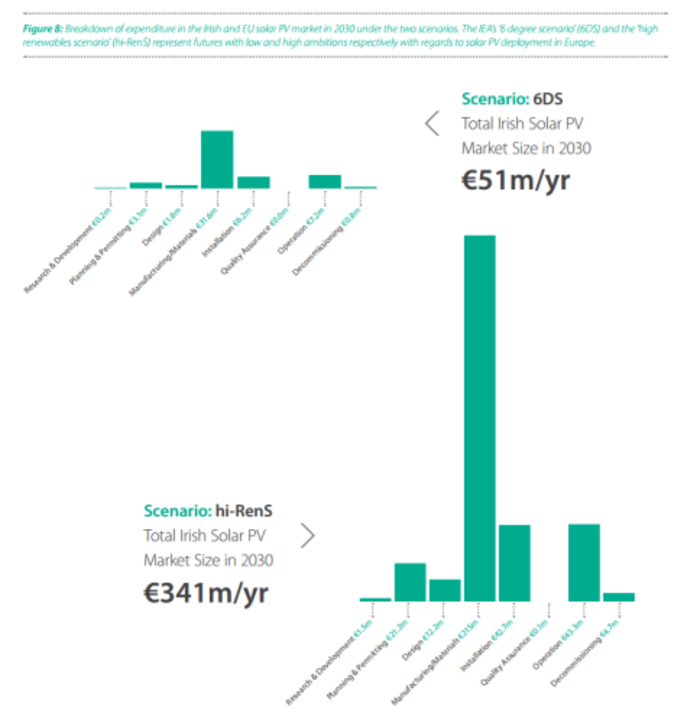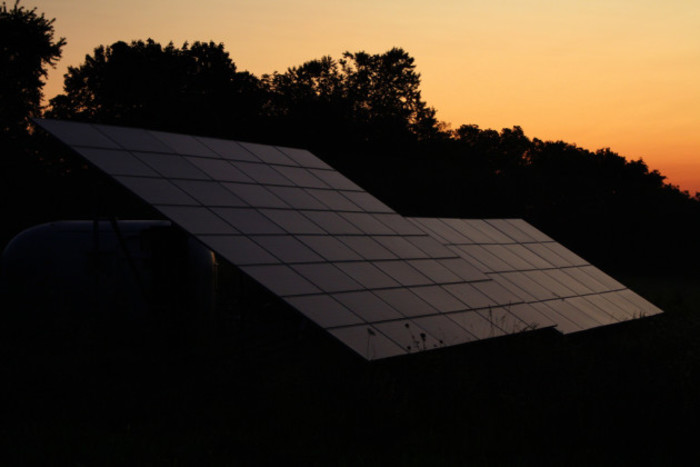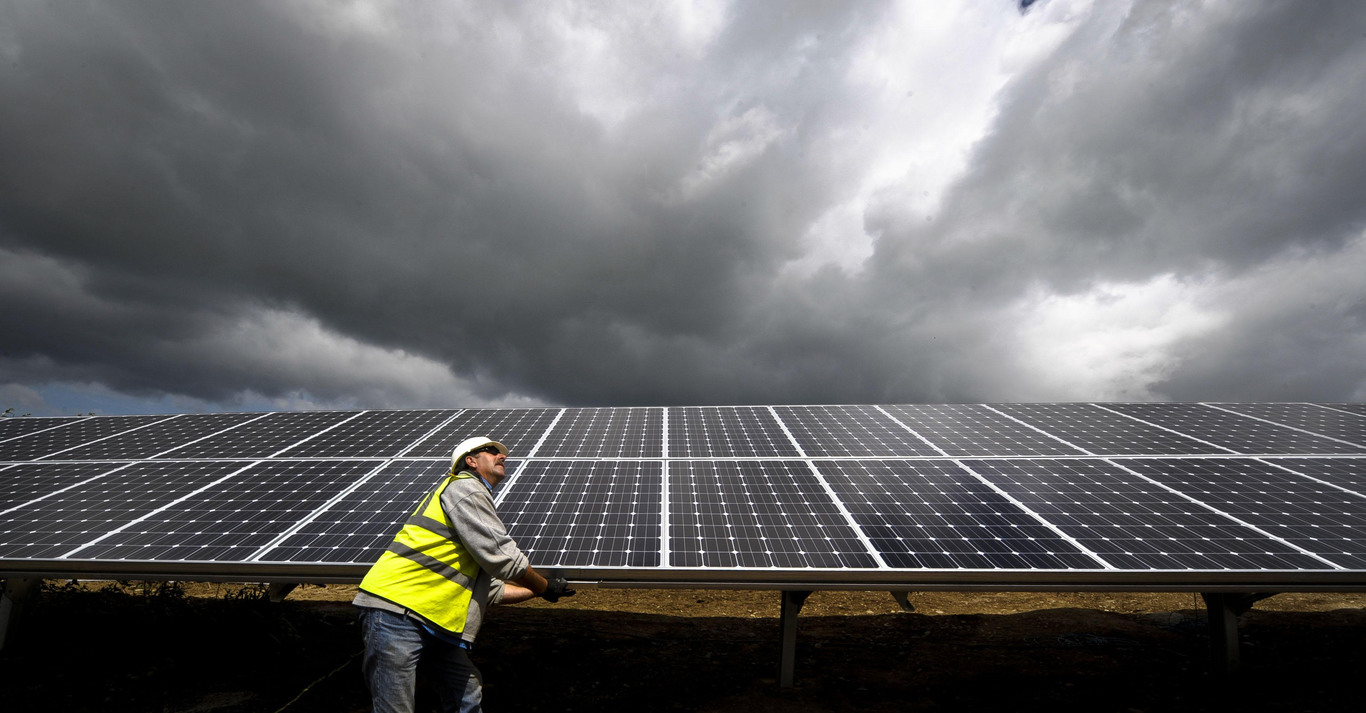How much money Irish firms could make from solar - and where they can get it
The country doesn’t have a big solar industry yet, but that may soon change.
IRISH BUSINESS COULD capture a piece of the EU solar energy market worth hundreds of millions of euro a year, a new report claims.
According to state body the Sustainable Energy Authority of Ireland (SEAI), the government has recognised that solar energy is likely to prove increasingly useful, especially as the cost of installation continues to fall.
“Given the projected scale of the future solar market in Europe, there is growing interest from Irish research and industry in the opportunities to capture some of the value of this global market,” the SEAI said.
It said that the total potential value of the EU solar market that Irish organisations could capture by 2030 is €42 million per year in its most conservative scenario, and €216 million in its most optimistic outlook.
The SEAI also estimated that the size of the indigenous Irish market, which is at a nascent stage at the moment, could grow to be worth between €51 million annually in the conservative scenario and €341 million a year in the optimistic scenario.
It said that this will depend on the “deployment and the degree to which Irish organisations can engage”.
The authority added that areas in which Irish companies and researchers could contribute included:
- Materials research and development. There would be a “missed opportunity” if Ireland didn’t apply its “world-leading materials research” to suitable areas of the industry, given the solar market’s anticipated scale
- Process engineering. Irish researchers and industry could export their expertise in “optimising silicon wafer manufacturing”
- Grid products and services. Developing soultions to manage and control solar integration into power grids would play into local research strengths in ICT, data analytics and telecoms.
Under both the optimistic and conservative scenarios, work on solar manufacturing and materials is likely to be the largest part of the Irish market by 2030, the authority said.
 The possible size of the Irish solar market
The possible size of the Irish solar market
“Furthermore, Irish organisations can position themselves to capture a significant share of the domestic solar market as it grows and maximise the benefits for Irish businesses, the research sector and communities,” the SEAI said.
Early stage
At the moment, the Irish domestic solar market is in its infancy. It is estimated that 1MW of installed solar capacity can power between 150 and 200 homes for a year. Just 6 megawatts (MW) of solar power has been installed across the country.
All of this has been on rooftops, and Ireland has no commercial-sized solar developments – those in the region of 5MW and up – to speak of.
This looks set to change in the near future. ESB Networks, which connects power generators to the national grid, received two solar applications in 2014. In 2015 there were over 300.
In total there are just under 3,000 MW (or 3 gigawatts) of solar applications already in the pipeline. If even a fraction end up being built, it would give Ireland a sizeable solar industry.
Issues
However, companies getting involved in the nascent sector face several issues that still need to be ironed out.
Many of the developers that have applied say that their projects will only be viable if a state subsidy for solar power is introduced. To date, the government has appeared cool on the idea.

Those that have ploughed ahead regardless have also faced uncertainty in regards to Ireland’s planning system, which doesn’t specifically address solar developments.
This was something noted by An Bord Pleanála when it upheld a decision to refuse permission for what would have been Ireland’s largest solar farm. The developer behind that project is now appealing that decision to the High Court.
The SEAI said in its report that several measures should be put in place to help the industry get off the ground in Ireland.
One of these was establishing a forum where industry and research communities could meet up on a regular basis to “generate opportunities for collaboration and knowledge transfer”.
It added: ”Some barriers which stakeholders requested are reviewed include planning and grid connection requirements for (solar), and development of standards for installation.
“Stakeholders identified complications in the grid connection process as the primary barrier which needs to be reviewed.”






